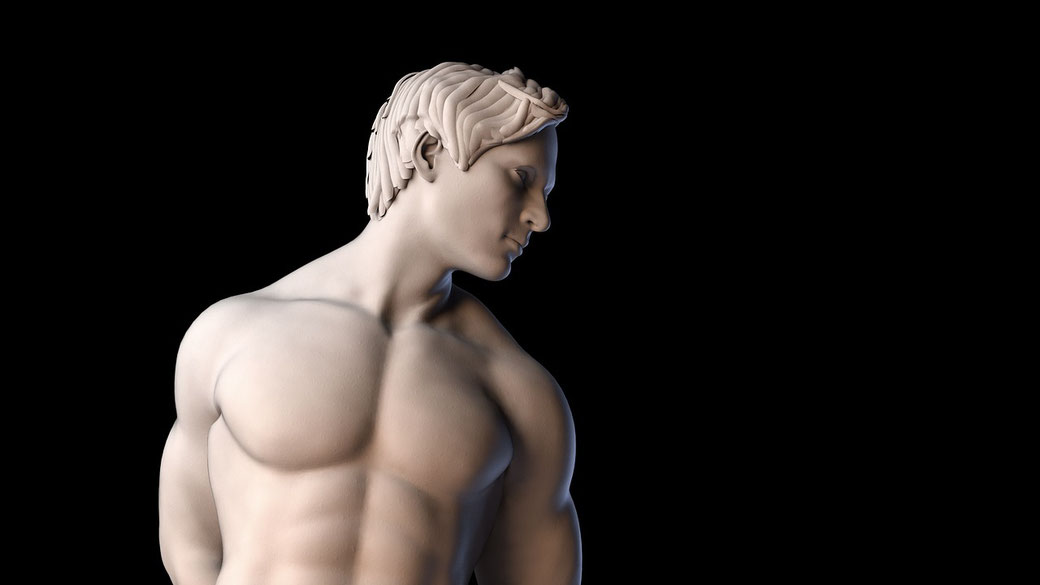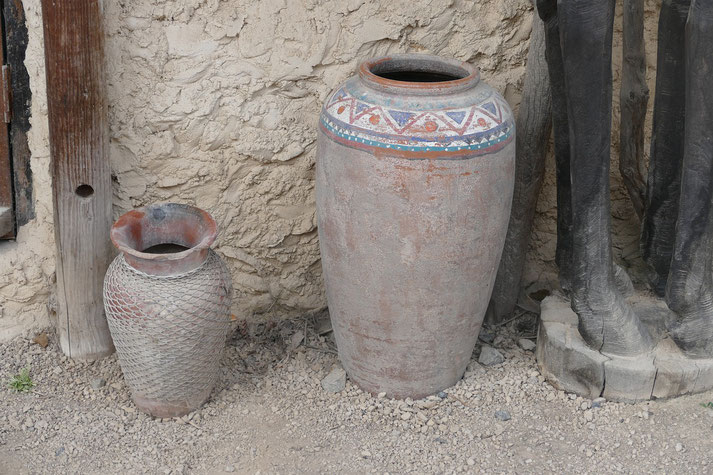Diogenes: the crazy, nudist Greek philosopher who insulted Alexander the Great

Imagine living in a ceramic jar, begging for food and money on the streets, and walking around naked in public.
This is the life of Diogenes, an ancient Greek philosopher who lived in the 4th century BCE.
Diogenes was not your average philosopher; he rejected material possessions, social norms, and anything else that stood in the way of his pursuit of virtue.
He was a radical thinker who believed in living a simple and honest life, free from the constraints of society.
But you won't believe what happened the greatest general of the ancient world sought him out one day...
Who was Diogenes?
Diogenes was born in Sinope, a Greek colony on the Black Sea coast of what is now modern-day Turkey, in the 4th century BCE.
His father, Hicesias, was a banker, and his family was believed to be relatively wealthy.
According to one legend, Diogenes' father was accused of debasing the currency, and as a result, the family was forced to leave Sinope and seek refuge elsewhere.
It is unclear where Diogenes went after leaving Sinope, but he eventually made his way to Athens, which was the center of Greek intellectual and philosophical life at the time.
There, he became a disciple of Antisthenes, the founder of the Cynic school of philosophy, which emphasized the rejection of material possessions and the pursuit of a simple and virtuous life.
What did Diogenes believe?
Diogenes is said to have embraced the Cynic philosophy wholeheartedly, rejecting the values of his time, including wealth, power, and social status, and advocated for a life of simplicity and self-sufficiency.
He believed that the pursuit of pleasure was a distraction from the pursuit of wisdom, and that the true happiness and freedom could only be achieved by living a simple and virtuous life.
The Cynics believed in living in harmony with nature, and they saw the pursuit of pleasure and wealth as distractions from the true goals of life, which were self-improvement and the cultivation of virtue.
They advocated for a life of poverty and asceticism, believing that true happiness could be found only in the absence of material desires.
The Cynics believed that virtue was the key to a happy life, and that it could be attained through the rejection of material possessions and the pursuit of wisdom and self-knowledge.
They saw themselves as living examples of their philosophy, and they encouraged others to follow their lead in living a simple, honest, and virtuous life.
Diogenes is perhaps best known for his famous search for an honest man. According to legend, Diogenes walked around Athens carrying a lamp in broad daylight, claiming to be looking for an honest man.
This story is often cited as an example of Diogenes' skepticism towards the prevailing social norms of his time, and his belief in the importance of living a truthful and honest life.
Diogenes' peculiar behaviours
Diogenes was known for his eccentric and provocative behavior, which was intended to challenge the norms and conventions of society and to illustrate his philosophical beliefs.
One of his most famous acts was living in a large ceramic jar in the marketplace of Athens.
By living in a jar, Diogenes showed that he was free from the trappings of wealth and luxury that were so prized in his time.
Instead, he embraced a life of poverty and simplicity, believing that true happiness could be found only in the absence of material desires.
Despite his reputation as a philosopher, Diogenes was known to beg for food and money. This was not out of necessity, but rather as a way of demonstrating his independence from the norms of society and his rejection of the pursuit of wealth and status.
By begging, Diogenes showed that he was not bound by the social hierarchies that governed his time. Instead, he lived a life of freedom and self-sufficiency, relying on his own resourcefulness and ingenuity to survive.

Diogenes was also known to walk around naked in public, even in cold weather.
Clearly, he was free from shame and embarrassment associated with the social conventions that dictated how one should dress and behave.
Also, Diogenes was known to eat his meals in the marketplace, where he would often share his food with stray dogs.
This was intended to illustrate his belief in the equality of all creatures and his rejection of the social hierarchies that separated humans from animals.
Finally, Diogenes was known to relieve himself in public, even in front of others, which demonstrated his rejection of the social taboos and restrictions that governed bodily functions.
When Diogenes met Alexander the Great
According to the ancient accounts, Diogenes met Alexander the Great when the Macedonian king visited Athens in 336 BCE.
Alexander, who had heard about the philosopher's reputation, went to see him at his residence in the marketplace.
When Alexander arrived, he found Diogenes lying in the sun. The king greeted him and asked if there was anything he could do for him.
Diogenes replied, "Yes, stand out of my sunlight." Alexander was taken aback by the philosopher's bluntness and replied, "If I were not Alexander, I would be Diogenes."
This exchange has become one of the most famous encounters between a philosopher and a ruler in history.

The philosopher's legacy
Despite his unconventional behavior, Diogenes was a respected philosopher in his time, and was known for his wit and wisdom.
He wrote several works, but none have survived to the present day.
Diogenes' influence on philosophy and culture has endured through the ages, and he remains a symbol of individualism and non-conformity.
He has been cited as an influence by many philosophers and writers, including Friedrich Nietzsche and Henry David Thoreau.
Today, his legacy continues to inspire those who seek to live a life of simplicity and independence, and his search for an honest man serves as a reminder of the importance of truth and honesty in our lives.
What do you need help with?
Download ready-to-use digital learning resources
Copyright © History Skills 2014-2025.
Contact via email
With the exception of links to external sites, some historical sources and extracts from specific publications, all content on this website is copyrighted by History Skills. This content may not be copied, republished or redistributed without written permission from the website creator. Please use the Contact page to obtain relevant permission.





